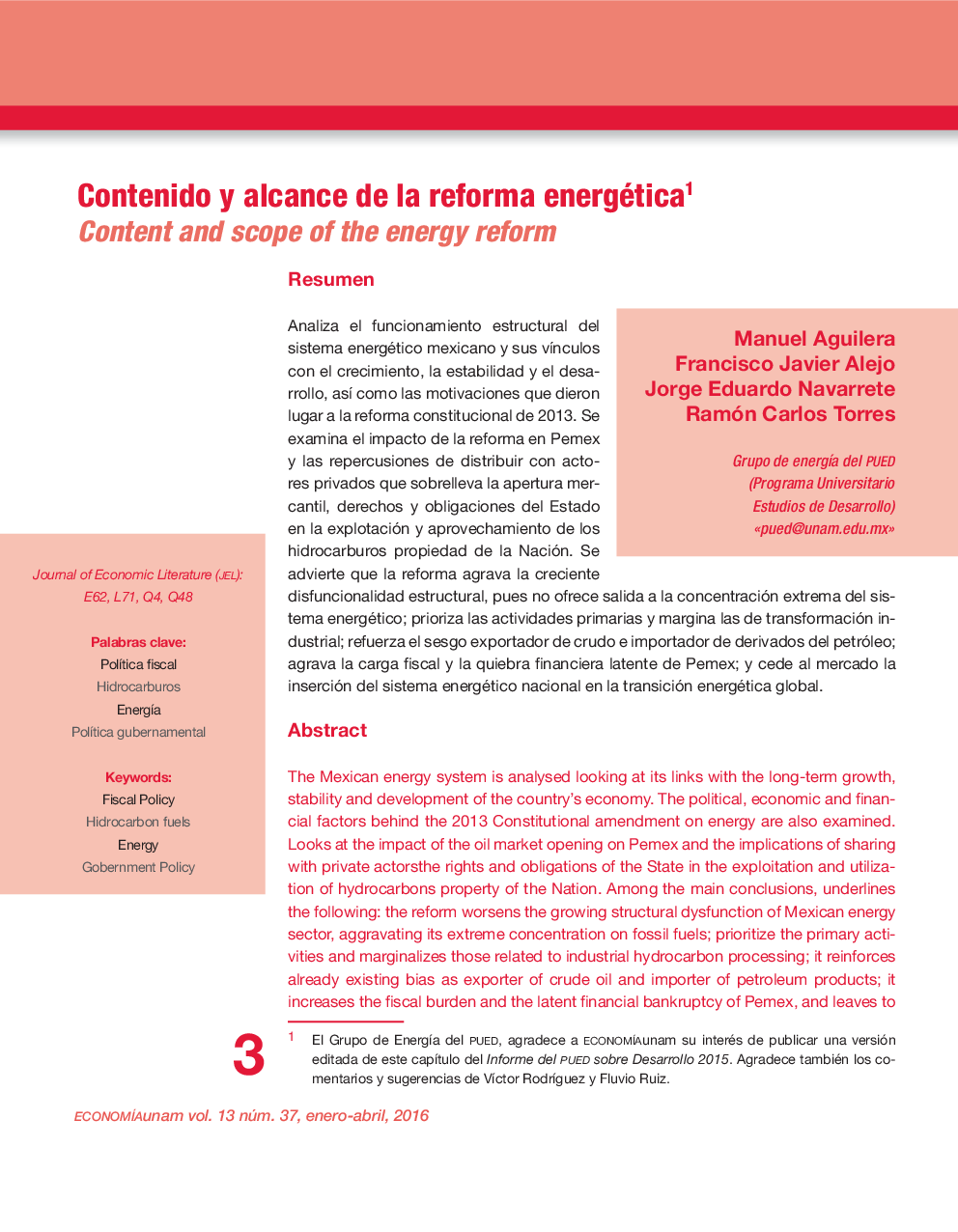| Article ID | Journal | Published Year | Pages | File Type |
|---|---|---|---|---|
| 7345998 | Economía UNAM | 2016 | 42 Pages |
Abstract
The Mexican energy system is analysed looking at its links with the long-term growth, stability and development of the country's economy. The political, economic and financial factors behind the 2013 Constitutional amendment on energy are also examined. Looks at the impact of the oil market opening on Pemex and the implications of sharing with private actorsthe rights and obligations of the State in the exploitation and utilization of hydrocarbons property of the Nation. Among the main conclusions, underlines the following: the reform worsens the growing structural dysfunction of Mexican energy sector, aggravating its extreme concentration on fossil fuels; prioritize the primary activities and marginalizes those related to industrial hydrocarbon processing; it reinforces already existing bias as exporter of crude oil and importer of petroleum products; it increases the fiscal burden and the latent financial bankruptcy of Pemex, and leaves to the market the pace and modalities of inclusion of the national energy system into the global energy transition.
Related Topics
Social Sciences and Humanities
Economics, Econometrics and Finance
Economics and Econometrics
Authors
Manuel Aguilera, Francisco Javier Alejo, Jorge Eduardo Navarrete, Ramón Carlos Torres,
